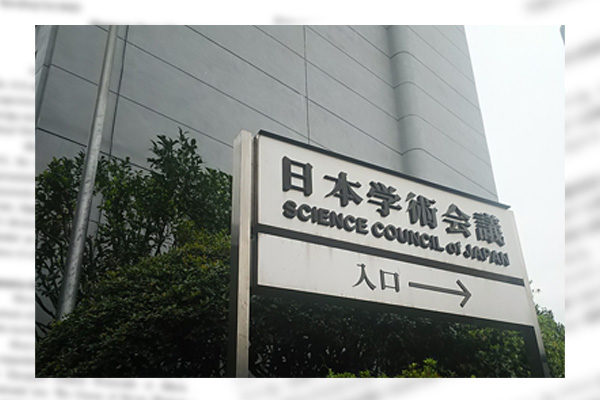The Science Council of Japan made public a stance that in effect tolerates studies on dual-use advanced scientific technologies that are available for both military and civilian purposes. Attention should be paid to the fact that the SCJ stance came as a response to an inquiry by Minister of State for Science and Technology Policy Takayuki Kobayashi about how to view dual-use studies.
There are two backgrounds behind the development.
First, the SCJ, though spending as much as 1 billion yen in taxpayers’ money annually, has been under the influence of some political forces and excessively put a brake on defense studies in Japan. The SCJ should be harshly criticized for such attitude. As arguments have arisen for abolishing or privatizing the SCJ, the government has been considering the SCJ’s way of being and intends to compile a plan soon with the SCJ’s own reform proposal and others in mind.
The latest stance must not be a smoke screen to circumvent such pressure.
Another background is economic security. Minister Kobayashi, who doubles as minister of state for economic security affairs, appreciated the new SCJ stance as leading to the promotion of economic security. The economic security promotion act, enacted in May, features four pillars including the promotion of research and development on advanced technologies through government-private cooperation. In this respect, a 500-billion-yen fund will be utilized for artificial intelligence, quantum and other technologies. Specifically, a government-private council will be created for each field. It is important for universities and other research institutes to take part in such councils. But an SCJ statement in 2017 could discourage them from doing so.
The 2017 statement against the world’s common wisdom
The SCJ issued statements in 1950 and 1967 vowing not to conduct military studies. In 2017, it came up with a statement that took over the older statements and could shut the door to dual-use studies.
The 2017 SCJ statement was designed to refuse a new system launched by the Acquisition, Technology and Logistics Agency of the Defense Ministry to provide funding for advanced basic studies. The statement sought to establish a system to cautiously check at the outset of the study if the results could be used for military purposes irrespective of scientists’ intentions. In response to the statement, universities rejected researchers’ applications for the Defense Ministry system one after another, leading to a rapid fall in the number of such applications. While countries in the world have competed to develop artificial intelligence, quantum and other dual-use technologies, Japan has clearly lagged behind other countries.
In this respect, the latest stance announced by the SCJ says that it would not be realistic to classify scientific technologies by potential use and make uniform decisions on how to handle specific technologies. The stance, though being nothing special, came at last under external pressure.
A step forward, but no policy change
It is premature to take the new SCJ stance as a policy change. The new stance only modified the 2017 statement because it is not realistic to reject studies due to military use risks when considering whether to launch studies. In a manner to deny any policy change, a senior SCJ official told a news conference that there was no change to the stance on military-purpose studies.
Nevertheless, the new stance means a step forward. This has removed an impediment to research and development under the economic security promotion act.
However, we must not be relieved. The problem is how to spread the new stance among academics at universities. We should be alert to potential pressure on academics from groups that oppose military studies.
Masahiko Hosokawa is a professor at Meisei University and a former director-general of the Trade Control Department at Japan’s Ministry of Economy, Trade and Industry. He is also a Planning Committee member at the Japan Institute for National Fundamentals.


